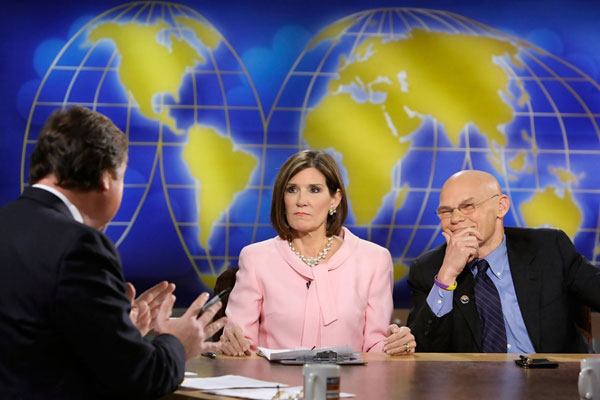Every organization has a tale to tell. The question we're asked at The Ivy Group is, "How do we get the media interested in our story?” My answer is, "Start at the end." Ask yourself what story you'd like to see and where. Then, draft a compelling narrative, tying into larger themes and current events, if possible. But that's only half the story. Once you create it, how do you get the media to listen?
Here are five easy tips for getting your organization some "earned" media:
1. Be contrary.
Pitch your organization as the exception, the one that's going against the tide. The key is to tie your organization to the opposite of what's in the media spotlight. For example, if there is a flurry of stories on how widget sales are down, take the opportunity to explain how widget sales are up for your company, and, most importantly, why.
2. Be unique.
This is similar to being contrary (above). But instead, you explain how you do something in a way that no other organization does. Are you the only one in your industry still manufacturing your product in the U.S.? Do you have a secret recipe that's been passed down for decades? Do you have a legendary employee? Determine what makes your organization different, and then shout that story from the rooftops.
3. Be a problem-solver.
Just pick up the newspaper or surf over to your favorite news website: it's filled with gloom and doom. Show how your organization or product solves an in-the-news problem. Or, if you have expertise on a particular subject, posit a well-thought-out solution. Think beyond the front page; an op/ed or letter to the editor may be one way to go. Build that proverbial "better mousetrap" and the media will beat a path to your door.
4. Be a quote machine.
Certain experts are known as media darlings. (Think: Mary Matalin and James Carville.) Their opinion gets near-the-top billing. How can someone in your organization become a quotable expert?
That person should 1) have expertise, 2) have a strong opinion, 3) be able to clearly and concisely articulate that opinion and 4) be willing to share it on the media's timetable. Be forewarned: it takes a special person to become a quote machine, willing to take and dish out criticism. It's not for the diplomatic, faint-of-heart or wishy washy. The media wants clear, bold statements backed up with facts and credentials. (Think Donald Trump. Love him or hate him, when he says something, it makes news.) But becoming a media darling doesn't happen overnight. It takes time to build credibility and relationships.
5. Be a calculator.
The media love numbers. If a picture is worth a thousand words, then a number is worth at least several hundred. There are lots of ways to use numbers to garner media attention. Take a survey and share the results. Analyze data that your organization collects and make it the basis of a report on the state of your industry. Show trends and how your organization is following (or bucking) them. Interesting numbers can add up to ink for your organization.
A few notes of caution. Don't waste the media's time. Do your homework before you pitch your story. And remember, not all publicity is good publicity. If the publicity comes at the price of your reputation, then it's not worth it. Instead of subscribing to P.T. Barnum's famous assertion -- "I don't care what the newspapers say about me as long as they spell my name right" -- those seeking publicity would be better served by heeding the warning of Benjamin Franklin: "It takes many good deeds to build a good reputation, and only one bad one to lose it."
Category: Public Relations
Tags: media relations, public relations
